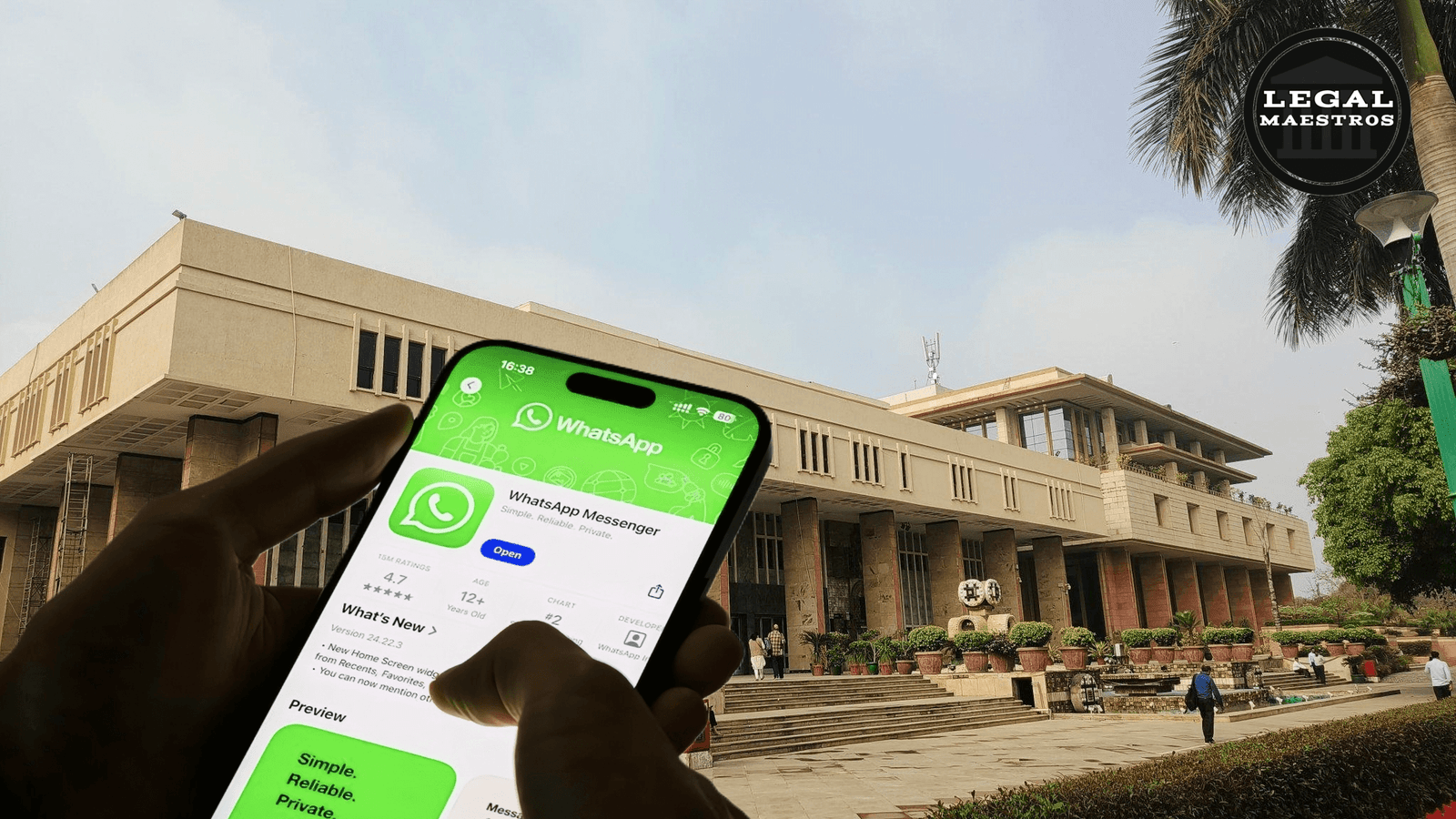
Recently the Delhi High Court passed an important judgment in relation to the issue of interim measures in arbitration dealing with important points of contracts formation, the territorial jurisdiction and the type of claim to be made in relation to unliquidated damages. The case is Belvedere Resources DMCC V. OCL Iron and Steel Ltd. & Ors., was a case that concerned a disagreement that emanated out of a coal trading deal.
The Case in brief: Coal and Contract Dispute
Belvedere Resources DMCC, a company headquartered in UAE of late 2022, was engaged in negotiations of the sale of coal with S.M. Niryat Pvt. Ltd. (SMN), by use of WhatsApp texts. Such talks resulted in Belvedere making a formal offer to SMN, which SMN accepted and resulted in Belvedere feeling that there was a binding contract. Circulated later was a Standard Coal Trading Agreement (ScoTA), which had an arbitration clause providing that the seat of arbitration should be in Singapore. Belvedere had nominated a vessel, MV GLYFADA and SMN accepted. But SMN later did not pay the advance amount and on, November 15, 2022 terminated the deal unilaterally. It further prompted Belvedere to file arbitration proceedings on June 14, 2024, based on the wrongful termination of the contract.
A critical turn of events came in the arbitration so far: OCL Iron and Steel Ltd. (R1) told the Singapore International Arbitration Centre (SIAC): that SMN was no more, having been merged with OCL Iron and Steel Ltd. under an NCLT adjudication dated January 30, 2024. This posed as a challenge to Belvedere who approached the Delhi High Court with a petition that sought to invoke Section 9 of the Arbitration and Conciliation Act, 1996. In this petition, the applicant requested interim relief, in this case, monetary security under an estimated value of USD 2.77 million (INR 23.34 Crores) and an injunction to bar the respondents (to) reduce the strength of their financial resources or alienate properties. This first ruling of the Delhi High Court was against the petitioner and sent him to the arbitral tribunal but an appeal was made on the judgment on grounds that it was 37 of the act. The Division Bench in turn returned the case to be heard afresh by the Single Judge, without closing any legal argument.
For any queries or to publish an article or post or advertisement on our platform, do call at +91 6377460764 or email us at contact@legalmaestros.com.
The Preliminary Basic Legal Issues During the Trial
Freshly considered by the Delhi High Court, these are the three basic questions, to be determined by the Court, that enlighten about essential clauses of the Arbitration and Conciliation Act, 1996 and the Code of Civil Procedure, 1908:
To begin with, was there any Stipula of a good arbitration agreement between Belvedere and SMN on their communications?
Second, was it within the territorial jurisdiction of Delhi High Court to take up this petition and dispose of it under the Section 9 of the Arbitration and Conciliation Act, 1996?
Third, ought the respondent be ordered to offer security to the equivalent amount of the claim?
arbitration agreement: Agreements other than signatures
With respect to the former, Section 7(4) (b) of the Arbitration and Conciliation Act 1996 of India was thoroughly considered by the court and the words of this section stated, that an agreement contained in an exchange of letters, telex, telegrams or other means of telecommunication [or communications in electronic form] which provide a record of the arbitration agreement was recognized by the court. The court noted that the emailing and WhatsApp conversations between Belvedere and SMN, whereby the ScoTA was exchanged and discussed, respectively, showed clearly that mutual understanding and agreement behind the arbitration clause had taken place. The further acts of the respondent like seeking reports about the vessel and even trying to abrogate the deal further confirmed the fact that there was a binding agreement. The court used the decision of the Supreme Court to rely upon.
Cox & Kings Ltd. v. SAP India (P) Ltd., where it was noted that documentary evidence of communications made to the parties may be used to prove the existence of an arbitration agreement thus, giving priority to the manifestation of consent by way of action by the parties. So, the court found that there existed a valid arbitration agreement between the parties.
The territorial Jurisdiction in Limits
The second and probably most debatable one was the question of territorial jurisdiction. To indicate the jurisdiction, the petitioner stated that the respondent had a corporate office in Delhi, and had been having some substantial shares in a company in Delhi. But this court did not relent, unreservedly deciding to disapprove of the territorial jurisdiction in Delhi. It indicated that should not apparently have a place of business, and in particular be engaged in the transaction in controversy, in order to gain jurisdiction. The court has pointed out that the actual transactions as regards to negotiating and performing the contract and repudiating it all took place outside Delhi, in Kolkata, Dubai, and Singapore. Moreover, the court made it clear that mere presence of an asset in the jurisdiction of a court would not, per se, give a cause of action to initiate a suit to demand damages especially under Section 16 to 20 of the Code of Civil Procedure, 1908. The issue of asset location is important in the implementation of a decree, but this is not used in deciding which court should have the case first.
Unliquidated- Damages and Intermediate Security
Lastly, the court was on the question on whether to order the respondent to provide security back against the petitioner; the court did not dwell on the petitioner. The court pointed out that Belvedere did not claim liquidated damages, or in other words the damages with a fixed amount. Indian law as explained in
Union of India v. Raman Iron Foundry, argues that such a claim to unliquidated damages remains a mere claim until and until a competent court or an adjudicatory body has done its part: namely, estimating, judging the liability as well as quantifying the amount. Hence in the absence of such prior adjudication, there is no duty to provide security.
Further, the court took into consideration the circumstances of attachment prior to judgment with order XXXVIII Rule 5 of the code of civil procedure, 1908. It is one which needs to exhibit that the defendant has shown an intention to frustrate or hinder the enforcement of the possible decree by getting rid of or disposing his/her property. The court did not see any such bad intention or wastage of funds by OCL Iron and Steel Ltd.. The case that OCL was a company which had undergone a Corporate Insolvency Resolution Process (CIRP) which had also been successfully completed was not sufficient by itself to justify an order of security. The court decision was also affected by the fact that the petitioner showed delay in filing the application of the interim measures, which was well after the breach of the contract.
A Word of Reminder of Legal Formalities and Prudence
About the Belvedere Resources DMCC case judgment The Belvedere Resources DMCC case: Judgment The OCL Iron and Steel Ltd. & Ors. is a lesson of great significance to parties which approach the arbitration proceedings with a request to grant interim relief. Although the modern methods of communication such as an email and WhatsApp can prove the existence of an arbitration agreement, the principles of territorial jurisdiction and the type of damages are also essential. The parties should also make sure that their petitions are filed in the right court, where there exists a clear cause of action and the claims to interim security satisfy the rigorous test of this kind of petitions, in the scenarios of unliquidated damages and obvious lack of evidence regarding the dissipation of assets. The close attention of the court to these provisions indicates the need to respect the rules of legal formality even when it comes to the rapidly progressing commercial cases.







